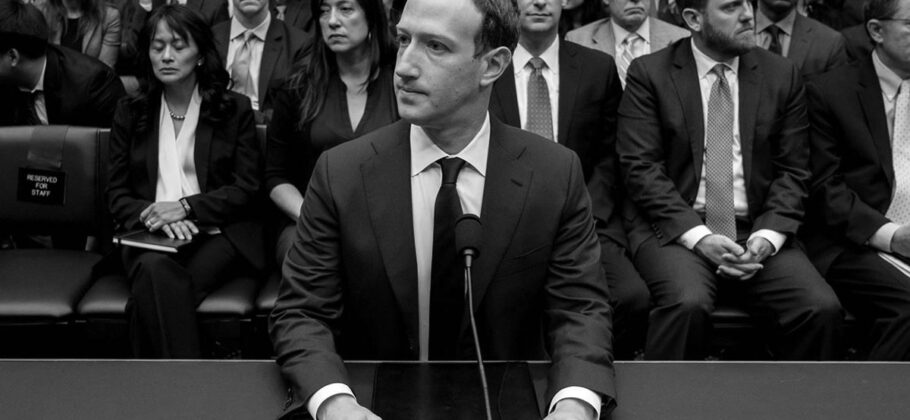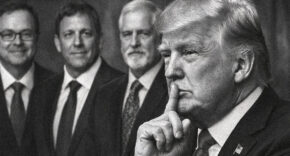Meta CEO Mark Zuckerberg spent Monday in a federal courtroom defending his company against one of the most significant antitrust cases in recent history. The Federal Trade Commission (FTC) has accused Meta of using its size and financial power to crush competition in the social media market, particularly through its acquisitions of Instagram and WhatsApp. If the case succeeds, Meta could be forced to break up its empire, marking the biggest government-ordered company split since AT&T in the 1980s.
What Meta Is Being Accused Of
At the heart of the case is the government’s claim that Meta engaged in illegal conduct by buying out companies that posed a competitive threat, instead of competing with them fairly. FTC attorney Daniel Matheson described Meta’s behavior as a “buy or bury” strategy. “They decided that competition was too hard, and it would be easier to buy out their rivals rather than compete with them,” Matheson said during opening arguments.
The lawsuit points to Meta’s $1 billion purchase of Instagram in 2012 and its $19 billion acquisition of WhatsApp in 2014 as evidence. According to the FTC, both purchases were designed to eliminate rising threats in the social media space. Internal messages from Zuckerberg at the time show that he saw Instagram’s fast growth as a danger to Facebook. “I wonder if we should consider buying Instagram,” Zuckerberg wrote in a 2012 message. He also mentioned that buying the company without shutting it down could help Facebook avoid backlash and keep competitors from entering the space. “By not killing their products we prevent everyone from hating us and we make sure we don’t immediately create a hole in the market for someone else to fill,” he said.
The FTC believes this pattern shows that Meta was building a monopoly by eliminating choice for consumers and blocking innovation from smaller companies. The agency’s legal argument rests on the claim that Meta has too much control over “personal social networking services,” making it difficult for new companies to gain traction.
How Zuckerberg Defended Meta
Zuckerberg spent much of his time on the witness stand being questioned about the early days of Facebook and the decisions that led to the acquisitions of Instagram and WhatsApp. He argued that the company’s purchases were not about eliminating competition but about enhancing services for users. He also explained that Facebook was facing challenges transitioning to mobile and needed to catch up quickly. “Theoretically we could go build this technology, but I’m worried we’re so far behind,” he wrote in another 2012 email.
When asked about changes to Facebook over the years, Zuckerberg said the platform had evolved from focusing mainly on connecting friends to offering a broader range of features. “The ‘friend’ part has gone down quite a bit—but it’s still something we care about,” he said. He added that users today are connected to “a lot more groups and other kinds of things” than in the past.
Judge James Boasberg, who is overseeing the trial, asked Zuckerberg several questions directly, including technical ones about Facebook’s early reliance on HTML5 instead of native mobile apps. Zuckerberg explained that relying on HTML5 had been a mistake that slowed the company down. That delay, he implied, was part of the reason Facebook felt the need to act quickly to acquire Instagram.
Meta’s Legal Defense
Meta’s attorney, Mark Hansen, strongly pushed back against the FTC’s claims. He said that Meta’s services have been free for users and that the acquisitions improved quality, innovation, and user experience. “The facts are going to prove that the FTC’s theories are all wrong,” Hansen said. He described the government’s case as a “grab bag” of arguments that conflict with the law.
Hansen also argued that the FTC had drawn the wrong boundaries around the market. While the FTC claims Meta dominates “personal social networking,” Hansen said the real competition is broader. He pointed to TikTok, YouTube, LinkedIn, and other platforms that also offer ways for users to connect. One of Meta’s slides even showed the same Michael Jackson video on TikTok, Instagram Reels, and YouTube Shorts, showing how similar the platforms are and how users have plenty of alternatives.
“The FTC is pretending like TikTok and YouTube don’t exist,” Hansen said, adding that people can and do switch between platforms all the time. He also noted that when TikTok was briefly unavailable in the United States, its users quickly moved to other apps, including Meta’s own platforms, showing that no single app holds a monopoly.
What Happens Next
This case is expected to last about eight weeks, with Judge Boasberg deciding the outcome without a jury. In the weeks ahead, the court will hear from several former top Meta executives, including former Chief Operating Officer Sheryl Sandberg and former Chief Technology Officer Andrew Bosworth.
If Judge Boasberg rules that Meta violated antitrust law, the next phase would involve deciding how to fix the problem. That could include forcing Meta to separate from Instagram and WhatsApp, a move that would significantly reshape the company and the industry.
The trial comes at a time when regulators in both the United States and Europe are cracking down on the power of major tech companies. Meta, now valued at over $1.4 trillion, is one of several firms under intense scrutiny. Google is facing its own antitrust cases involving both search and advertising, and the European Union is preparing rulings against Meta and Apple.
Political Tensions Behind the Case
Former Judge Andrew Napolitano expressed surprise that the Trump administration is allowing the case to continue, even though it began under President Biden. “It’s a novel theory of antitrust,” Napolitano told Newsmax. “And I’m surprised that the Trump people are permitting it to go forward.”
He questioned whether buying a competitor should be considered illegal. “That’s what you do. You compete with the big guys and hope they buy you out,” he said. “And you do so with glee.”
Still, others in Trump’s circle have reportedly been encouraging him to take a tougher stance on Meta and its influence, especially after efforts by Meta to lobby against stronger regulation.
The Stakes
The Meta trial could set a major precedent for how the government handles the power of tech companies. If the FTC wins, it will show that regulators can successfully challenge the dominance of platforms that shape daily communication and online life for billions of people. If Meta prevails, it may signal that even aggressive antitrust enforcement still has limited power when faced with the complexity of modern tech giants.
Either way, the result will be closely watched, and it could have lasting effects on how tech companies grow, merge, and compete in the future.





